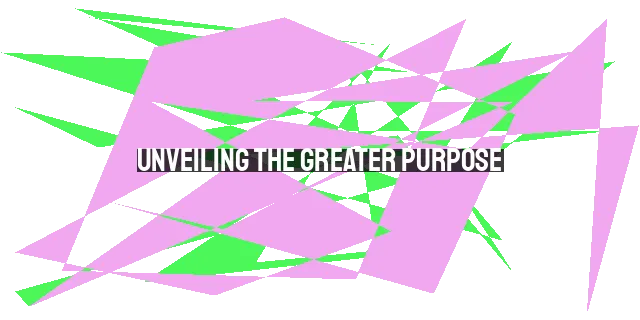Christian Hub
1 year ago
Finding Rest in the Arms of the Sleep-Giving God
On some sleepless nights, as the lights go off and the house grows quiet, a restful hush seems to descend on everything around us — but not on us. We lie on our bed like Gideon’s fleece, the only dry spot in a world bedewed with sleep. A thousand thoughts may keep us awake when all around us rests. Thoughts of work unfinished and questions unanswered. Thoughts of living sorrows and dead comforts. Thoughts of last day’s regrets and next day’s needs. Falling asleep may seem simple enough. “All it takes,” writes sleep researcher Nancy Hamilton, “is a tired body and a quiet mind” (The Depression Cure, 207). Yet the second half of that equation sometimes feels like a wish beyond reach. We might sooner touch the moon.
Our Lord “gives to his beloved sleep,” Solomon assures us (Psalm 127:2). But on nights such as these, we can hold the gift in helpless hands, wondering how to unwrap it.
Calm and Quiet Mind
The psalmists knew just how easily cares, sorrows, and mysterious causes could chase the sleep from their eyes. They, like us, had lain for long hours on their beds, thoughts churning (Psalm 77:1–3). They had watched many moons roll slowly across the sky (Psalm 22:2). They knew that sometimes, for good and kind reasons, the God who gives to his beloved sleep also takes from his beloved sleep.
And yet, Solomon and David and the other psalmists also knew that sleep really was possible, even on the most unlikely nights. Even when hunted in the wilderness (Psalm 3:5), or sunk down in sorrow (Psalm 42:8), or consumed with thoughts of life’s half-finished buildings (Psalm 127:1–2), they had experienced the wonder of laying their cares before their God, and laying themselves down to sleep. The psalmists knew that a quiet mind could be theirs, even when a quiet life was not.
No doubt, a quiet mind comes, in part, from simple wisdom: if we drink coffee in the late afternoon, or try to sleep in the afterglow of our smartphones, we should not be surprised to find ourselves still awake at midnight. But ultimately, the Psalms remind us that a quiet mind comes from the hand of our sleep-giving God, who nightly draws near to our beds as the Lord who is our shield, our shepherd, our comfort, our life.
The Lord Is Your Shield
"I lay down and slept; I woke again, for the Lord sustained me" (Psalm 3:5).
The David of Psalm 3 had every reason to be anxious, every reason to lie down on a bed of cares. Chased from Jerusalem by a treacherous son, he now ran through the wilderness, hunted like a beast. I can scarcely imagine a scenario less hospitable to sleep. Yet sleep David did, and apparently without much trouble: “I lay down and slept,” he says.
But how did David find rest in such dire circumstances? David’s words just before these shed particularly helpful light on the faith that sent him to sleep:
"I cried aloud to the Lord, and he answered me from his holy hill" (Psalm 3:4).
David, king of Israel, was used to reigning on the holy hill of Jerusalem. He once sat atop that hill with tremendous authority, royal power. Yet David knows that even when his own throne sits empty, or occupied by a rebel son, God’s throne is always and ever full. David didn’t need to reign on his throne in order to sleep; he just needed God to reign on his. If only God was on his holy hill — his character sure, his covenant firm — then David could sleep in the wilderness.
We may lie down tonight in some wilderness of helplessness, hunted by cares far beyond our control. We may feel utterly vulnerable before some dark and brooding uncertainty — some coming diagnosis, some job insecurity, some relational conflict with much at stake. But even then, our God still sits with crown and scepter, his holy hill untouched. He is, by night, “a shield about me,” and by morning, “the lifter of my head” (Psalm 3:3). Our cares may be many and close; our God is mighty and closer.
The Lord Is Your Shepherd
"The Lord is my shepherd; I shall not want. He makes me lie down in green pastures" (Psalm 23:1–2).
In his helpful little book And So to Bed . . ., Adrian Reynolds notes that sheep lie down for only one reason: to rest or sleep. Picture, then, those familiar green pastures of Psalm 23 dotted with mounds of dozing wool, at rest beneath a shepherd whose faithful care assures them, “I shall not want.”
How many restless nights find their source in the deep-down fear that we shall, in fact, want — that the new morning will not bring new mercies, that tomorrow’s bread will not come? How often does our lonely ruminating suggest that we do not trust the Lord to be our shepherd? How strange and sad it would be to see a sheep anxious and fearful beside the rod and staff, bleating as if it walked alone. Yet so I often am.
On such nights, we could hardly ask for a better bedtime confession than “I shall not want” — nor for a better assurance of that truth than “the Lord is my shepherd.” Especially when tomorrow seems filled with daunting needs, with wants beyond the strength of sheep, these words may become the staff that leads us to green pastures, the shepherd’s hand that lays us down.
If the Lord really is our shepherd, then our wants do not require a worried and wakeful heart. He can do far more in our sleeping than we can do in our waking. And whatever needs tomorrow holds, his provision will prove equal to the task.
The Lord Is Your Comfort
"He determines the number of the stars; he gives to all of them their names" (Psalm 147:4).
Among the many kinds of restlessness the psalmists bring to their beds, the restlessness of sorrow may be the most common. Throughout the Psalms, we read of midnight weepers, of wakeful, comfortless souls, of saints whose tears stain their sheets. Sorrow often makes for a sleepless heart.
In such moments, God’s voice in creation joins his voice in Scripture to speak comfort over our pain. Turn, then, and look out your window. Can you see a hundred burning stars — and imagine beyond them billions more? Your God “determines the number of the stars; he gives to all of them their names.” Such a thought might, at first, make us feel smaller than ever, our broken hearts too humble for God’s notice. But the psalmist draws the opposite application: if God names the very stars — these background props of creation — then he has certainly not lost sight of his dear people’s sorrows.
God’s exhaustive awareness of heaven’s hosts is meant to assure us not of our insignificance, but of his attention — and his attention particularly to our pains: “He heals the brokenhearted and binds up their wounds,” the psalmist says. As surely as he knows the name of every star, he knows our hidden sorrows, our unseen aches. And he is, for all his people, the great Healer of hearts and Binder of wounds.
Such a promise, shining from every star above, can become the song that sends us to sleep.
The Lord Is Your Life
"As for me, I shall behold your face in righteousness; when I awake, I shall be satisfied with your likeness" (Psalm 17:15).
Someday, if Jesus should tarry, we will shut our eyes one final time, never to awake again in this world. The psalmists keenly felt the coming of this last sleep. But they were also given glimpses, however small, of something past this sleep. When David sings of a waking that will show him “your face . . . your likeness,” he sings of a waking beyond this world, a morning only heaven could make.
It was a precious glimpse, but still just a glimpse. You and I see more. For David’s Son has now come, bringing a dawn beyond death’s night. For two days he lay down in the tomb, and then on the third, he woke. The apostle Paul draws the line between Jesus’s great and final sleep and ours:
"God has not destined us for wrath, but to obtain salvation through our Lord Jesus Christ, who died for us so that whether we are awake or asleep we might live with him."
As we go to sleep tonight, our Lord’s hands are ready to hold us safe. And in the hollow of his hands is a quiet that can calm the loudest mind, waking or sleeping, living or dying. Because even if this sleep should be our last, our eyes will open once again — not now upon the face of spouse or children, but upon the face of him who for ten thousand nights has been our shield, our shepherd, our comfort, and now our everlasting life.
Our Lord “gives to his beloved sleep,” Solomon assures us (Psalm 127:2). But on nights such as these, we can hold the gift in helpless hands, wondering how to unwrap it.
Calm and Quiet Mind
The psalmists knew just how easily cares, sorrows, and mysterious causes could chase the sleep from their eyes. They, like us, had lain for long hours on their beds, thoughts churning (Psalm 77:1–3). They had watched many moons roll slowly across the sky (Psalm 22:2). They knew that sometimes, for good and kind reasons, the God who gives to his beloved sleep also takes from his beloved sleep.
And yet, Solomon and David and the other psalmists also knew that sleep really was possible, even on the most unlikely nights. Even when hunted in the wilderness (Psalm 3:5), or sunk down in sorrow (Psalm 42:8), or consumed with thoughts of life’s half-finished buildings (Psalm 127:1–2), they had experienced the wonder of laying their cares before their God, and laying themselves down to sleep. The psalmists knew that a quiet mind could be theirs, even when a quiet life was not.
No doubt, a quiet mind comes, in part, from simple wisdom: if we drink coffee in the late afternoon, or try to sleep in the afterglow of our smartphones, we should not be surprised to find ourselves still awake at midnight. But ultimately, the Psalms remind us that a quiet mind comes from the hand of our sleep-giving God, who nightly draws near to our beds as the Lord who is our shield, our shepherd, our comfort, our life.
The Lord Is Your Shield
"I lay down and slept; I woke again, for the Lord sustained me" (Psalm 3:5).
The David of Psalm 3 had every reason to be anxious, every reason to lie down on a bed of cares. Chased from Jerusalem by a treacherous son, he now ran through the wilderness, hunted like a beast. I can scarcely imagine a scenario less hospitable to sleep. Yet sleep David did, and apparently without much trouble: “I lay down and slept,” he says.
But how did David find rest in such dire circumstances? David’s words just before these shed particularly helpful light on the faith that sent him to sleep:
"I cried aloud to the Lord, and he answered me from his holy hill" (Psalm 3:4).
David, king of Israel, was used to reigning on the holy hill of Jerusalem. He once sat atop that hill with tremendous authority, royal power. Yet David knows that even when his own throne sits empty, or occupied by a rebel son, God’s throne is always and ever full. David didn’t need to reign on his throne in order to sleep; he just needed God to reign on his. If only God was on his holy hill — his character sure, his covenant firm — then David could sleep in the wilderness.
We may lie down tonight in some wilderness of helplessness, hunted by cares far beyond our control. We may feel utterly vulnerable before some dark and brooding uncertainty — some coming diagnosis, some job insecurity, some relational conflict with much at stake. But even then, our God still sits with crown and scepter, his holy hill untouched. He is, by night, “a shield about me,” and by morning, “the lifter of my head” (Psalm 3:3). Our cares may be many and close; our God is mighty and closer.
The Lord Is Your Shepherd
"The Lord is my shepherd; I shall not want. He makes me lie down in green pastures" (Psalm 23:1–2).
In his helpful little book And So to Bed . . ., Adrian Reynolds notes that sheep lie down for only one reason: to rest or sleep. Picture, then, those familiar green pastures of Psalm 23 dotted with mounds of dozing wool, at rest beneath a shepherd whose faithful care assures them, “I shall not want.”
How many restless nights find their source in the deep-down fear that we shall, in fact, want — that the new morning will not bring new mercies, that tomorrow’s bread will not come? How often does our lonely ruminating suggest that we do not trust the Lord to be our shepherd? How strange and sad it would be to see a sheep anxious and fearful beside the rod and staff, bleating as if it walked alone. Yet so I often am.
On such nights, we could hardly ask for a better bedtime confession than “I shall not want” — nor for a better assurance of that truth than “the Lord is my shepherd.” Especially when tomorrow seems filled with daunting needs, with wants beyond the strength of sheep, these words may become the staff that leads us to green pastures, the shepherd’s hand that lays us down.
If the Lord really is our shepherd, then our wants do not require a worried and wakeful heart. He can do far more in our sleeping than we can do in our waking. And whatever needs tomorrow holds, his provision will prove equal to the task.
The Lord Is Your Comfort
"He determines the number of the stars; he gives to all of them their names" (Psalm 147:4).
Among the many kinds of restlessness the psalmists bring to their beds, the restlessness of sorrow may be the most common. Throughout the Psalms, we read of midnight weepers, of wakeful, comfortless souls, of saints whose tears stain their sheets. Sorrow often makes for a sleepless heart.
In such moments, God’s voice in creation joins his voice in Scripture to speak comfort over our pain. Turn, then, and look out your window. Can you see a hundred burning stars — and imagine beyond them billions more? Your God “determines the number of the stars; he gives to all of them their names.” Such a thought might, at first, make us feel smaller than ever, our broken hearts too humble for God’s notice. But the psalmist draws the opposite application: if God names the very stars — these background props of creation — then he has certainly not lost sight of his dear people’s sorrows.
God’s exhaustive awareness of heaven’s hosts is meant to assure us not of our insignificance, but of his attention — and his attention particularly to our pains: “He heals the brokenhearted and binds up their wounds,” the psalmist says. As surely as he knows the name of every star, he knows our hidden sorrows, our unseen aches. And he is, for all his people, the great Healer of hearts and Binder of wounds.
Such a promise, shining from every star above, can become the song that sends us to sleep.
The Lord Is Your Life
"As for me, I shall behold your face in righteousness; when I awake, I shall be satisfied with your likeness" (Psalm 17:15).
Someday, if Jesus should tarry, we will shut our eyes one final time, never to awake again in this world. The psalmists keenly felt the coming of this last sleep. But they were also given glimpses, however small, of something past this sleep. When David sings of a waking that will show him “your face . . . your likeness,” he sings of a waking beyond this world, a morning only heaven could make.
It was a precious glimpse, but still just a glimpse. You and I see more. For David’s Son has now come, bringing a dawn beyond death’s night. For two days he lay down in the tomb, and then on the third, he woke. The apostle Paul draws the line between Jesus’s great and final sleep and ours:
"God has not destined us for wrath, but to obtain salvation through our Lord Jesus Christ, who died for us so that whether we are awake or asleep we might live with him."
As we go to sleep tonight, our Lord’s hands are ready to hold us safe. And in the hollow of his hands is a quiet that can calm the loudest mind, waking or sleeping, living or dying. Because even if this sleep should be our last, our eyes will open once again — not now upon the face of spouse or children, but upon the face of him who for ten thousand nights has been our shield, our shepherd, our comfort, and now our everlasting life.



POST COMMENT
For post a new comment. You need to login first. Login
COMMENTS(0)
No Comment yet. Be the first :)